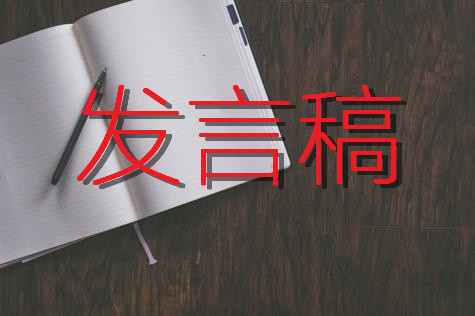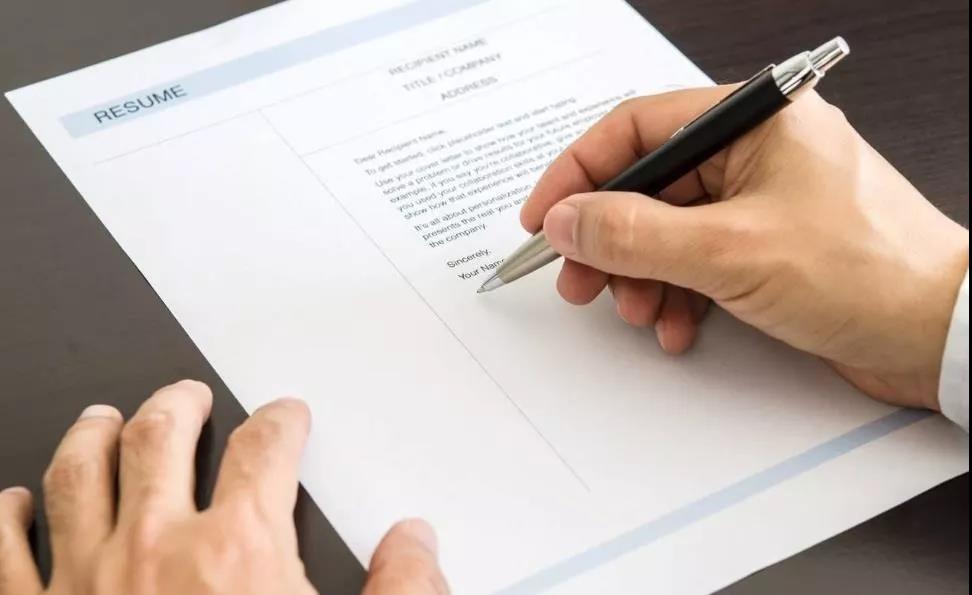下面是小编为大家整理的英*row汉语是什么意思【优秀范文】,供大家参考。

英*row的汉语是什么意思1
grow的汉语意思
英 [gr] 美 [gro]
第三人称单数:grows现在分词:growing过去分词:grown过去式:grew
基本解释
及物动词 种植; 增加; 扩大; 扩展
不及物动词 生长; 渐渐变得; 逐渐开始
及物/不及物动词 (使)留长,蓄长
相关词组
1. grow up : 成熟, 成年, 发展;
2. grow out of : 产生于;
3. grow on : 引起...爱好;
4. grow into : vt. 成长为;
grow的单语例句
1. " WuXi will continue to grow and expand its business as a standalone research firm, " said WuXi spokesperson Liu Jing.
2. She expects the domestic business will grow further next year because it is still a very small part of the firm"s total trade.
3. Yang also expects the bank"s personal consumer loan business to grow significantly during the coming five years.
4. Tang forecast that the banking sector"s net profits might grow more than 5 percent this year because of booming loan business.
5. Both Wang and Xiao Nan Guo started to grow in terms of business operations and market competition skills.
6. The recruitment package may be part of a larger push by Morgan Stanley to grow its wealth management business.
7. Boys need male teachers to learn how to act as responsible, intelligent adults when they grow up.
8. Singapore"s gross domestic product is forecast by the government to grow between 3 percent and 5 percent this year.
grow的词典解释
1. 生长;长大;发育
When people, animals, and plants grow, they increase in size and change physically over a period of time.
e.g. We stop growing at maturity.
我们成年之后不再长个儿。
2. 成活;生长
If a plant or tree grows in a particular place, it is alive there.
e.g. The station had roses growing at each end of the platform.
车站月台的两头种着玫瑰花。
3. 栽种;种植
If you grow a particular type of plant, you put seeds or young plants in the ground and look after them as they develop.
e.g. I always grow a few red onions...
我总是喜欢种一些红洋葱。
e.g. Lettuce was grown by the Ancient Romans.
古罗马人最先种植莴苣。
4. (毛发、指甲等)变长
When someone"s hair grows, it gradually becomes longer. Your nails also grow.
e.g. Then the hair began to grow again and I felt terrific.
然后,头发又长起来了,我感觉棒极了。
5. 留长(头发或指甲);蓄(胡须)
If someone grows their hair, or grows a beard or moustache, they stop cutting their hair or shaving so that their hair becomes longer. You can also grow your nails.
e.g. I"d better start growing my hair.
我最好开始留头发。
英*row的汉语是什么意思扩展阅读
英*row的汉语是什么意思(扩展1)
——英文home的汉语是什么意思
英文home的汉语是什么意思1
home的汉语意思
英 [hm] 美 [hom]
名词 家; 家庭; 家庭生活; 终点
形容词 家庭的; 家用的; 本地的; 本部的
副词 在家; 在家乡; 深深地; 深入地
不及物动词 回家; 有家; 朝向; 自动导航
及物动词 把…送回家; 送…回家; 给…提供住处; 使有安身之处
例句
1. Her home is far away.
她的家很远。
2. Now he has his home in Manchester.
他现在定居在曼彻斯特。
home的单语例句
1. These wide ranging products include indispensable items for the home and the office, for business and for pleasure.
2. The Chinese Mexican kept the two marriages secret by claiming he was doing business abroad and could not return home frequently.
3. The company has three major business segments - multimedia digital products, communications products and home appliances.
4. Although the trend toward home working is fueled by technology and employee demand, proactive employer initiative driven by business needs is equally important.
5. Although the trend toward home working is undeniably fueled by technology and employee demand, proactive employer initiative driven by business needs is equally important.
6. He said customers were getting familiar with home delivery services and had begun to trust the business model.
7. Police said Wang initially posed as a businessman and conned the family into letting him spend the night so he could scout their home.
8. The traditional Chinese Qingming Festival period is a busy period when people from home and abroad come to pay their respects.
home的词典解释
1. (比赛的)主场
When a sports team plays at home, they play a game on their own ground, rather than on the opposing team"s ground.
e.g. I scored in both games against Barcelona; we drew at home and beat them away.
我在两场对阵巴塞罗那队的比赛中都进了球;我们在主场战*,在客场赢了他们。
2. 像在家一样舒适自在;无拘束
If you feel at home, you feel comfortable in the place or situation that you are in.
e.g. He spoke very good English and appeared pleased to see us, and we soon felt quite at home...
他英语说得非常好,见到我们显得很高兴,我们很快就不拘束了。
e.g. I am not completely at home in any Protestant Church.
我在任何一个新教教会都不是特别自在。
3. 使清楚地领会;使深切地感到
To bring something home to someone means to make them understand how important or serious it is.
e.g. Their sobering conversation brought home to everyone present the serious and worthwhile work the Red Cross does.
他们发人深省的对话使在座的每个人都清楚地认识到红十字会所从事的严肃而有价值的工作。
4. 大功告成;稳操胜券
If you say that someone is, in British English home and dry, or in American English home free, you mean that they have been successful or that they are certain to be successful.
e.g. The prime minister and the moderates are not yet home and dry.
首相和温和派还未大功告成。
英*row的汉语是什么意思(扩展2)
——英文quit的汉语是什么意思
英文quit的汉语是什么意思1
quit的汉语意思
英 [kwt] 美 [kwt]
第三人称单数:quits现在分词:quitting过去分词:quitted; quit过去式:quitted; quit
及物动词 离开; 放弃,抛弃; 停止,中断; 偿清
不及物动词 辞职; 停止; 放弃斗争
形容词 自由的; 摆脱了责任或义务的
情景对话
怀疑
A:I quit my job.
我把工作辞了。
B:Are you joking?
开玩笑呢吧?
quit的单语例句
1. He quit a stable job as an English teacher at Peking University and started up a business to help students develop their English skills.
2. He quit his job and began looking for a location for the butcher shop.
3. The Times of India on Tuesday splashed its front page with " Quitting buzz grips the capital " despite strong official denials that Singh would quit.
4. The women all quit their jobs after discovering that they had been poisoned by cadmium, an extremely hazardous metal used to make some kinds of batteries.
5. Her question struck a chord with many Russians and some officials expressed remorse or offered to quit over the carnage.
6. It has been delayed several times, had a main actress quit and suffered numerous accidents that have left several actors hospitalized.
7. Fred Thompson quit the Republican presidential race on Tuesday, after a string of poor finishes in early primary and caucus states.
8. His success has already seen him linked with Celtic, who are looking for a manager after Gordon Strachan quit on Monday.
9. But some enumerators have already quit their post ahead of the sixth national census over fears they will not be able to complete the task.
quit的双语例句
1. In any case mentioned above, you can return back to DOS by quit command.
在以上提到的任何情况下,你都可以通过quit命令返回到DOS 。
2. He quit love with hate.
他恩将仇报。
3. Unfortunately, there is a time for learning task is too heavy, just quit.
但很可惜,有一段时间因为学习任务太重,就放弃了。
4. Sorry the pictures are not so clear because my seat is quit far away from the stage.
我找到了我的位子,刚开始看着舞台的时候,以为只是一个*台,什么都没有。
5. And they won`t quit the concert stage for the rest of their lives.
他们不会离开音乐舞台度过余生。
英*row的汉语是什么意思(扩展3)
——英文soon的汉语是什么意思
英文soon的汉语是什么意思1
soon的汉语意思
英 [su:n] 美 [sun]
比较级:sooner最高级:soonest
soon 基本解释
副词 快; 立刻,马上; 一会儿,不久; 宁愿
例句
1. It will soon be Christmas.
圣诞节很快就要到了。
2. I would as soon you didn"t tell me about that.
我宁可你不告诉我那件事。
3. She will be back soon.
她马上就回来。
4. She didn"t finish her homework as soon as she had expected.
她的`作业没有她预料的那样快完成。
soon的单语例句
1. But when it involves political tricks, business will come to an end soon.
2. And while game consoles aren"t going away, *ysts are skeptical that the business will regain its former stature soon.
3. If they fail to act on the plan, the money could be released as soon as specific projects get the OK.
4. Incentives to attract premium customers are expected to become a common practice for overseas lenders when they soon begin renminbi business.
5. Both Hang Seng Bank and DBS will establish their local entities in Shanghai and expect to begin business soon after completing industrial and commercial registration.
6. The company said it would reveal the specific figures in its annual business report soon.
7. China"s booming trust and investment business will soon have its own industry association, sources said.
8. Russian vodka manufacturers however said they were confident they would not go bust any time soon.
9. Pretty soon the guy was so flushed with money he opened a side business in a busy shopping district.
10. The Ministry of Education is busy playing down public expectations that the country will soon extend compulsory education from nine to 12 years.
soon的词典解释
1. 很快;马上;不久
If something is going to happen soon, it will happen after a short time. If something happened soon after a particular time or event, it happened a short time after it.
e.g. You"ll be hearing from us very soon...
你很快就会收到我们的来信。
e.g. This chance has come sooner than I expected...
这个机会来得比我预想的要快。
2. 一…就…
If you say that something happens as soon as something else happens, you mean that it happens immediately after the other thing.
e.g. As soon as relations improve they will be allowed to go...
一旦关系有所改善,他们就可以获准离开。
e.g. You"ll never guess what happened as soon as I left my room.
你怎么也猜不出我一离开房间就发生了什么事。
3. 宁可;宁愿
If you say that you would just as soon do something or you"d just as soon do it, you mean that you would prefer to do it.
e.g. These people could afford to retire to Florida but they"d just as soon stay put...
这些人有足够的钱可以去佛罗里达安度退休生活,可是他们却宁愿留在原来的地方。
e.g. I"d just as soon not have to make this public...
我宁愿不必将此事公之于众。
英*row的汉语是什么意思(扩展4)
——英文type的汉语是什么意思 (菁选2篇)
英文type的汉语是什么意思1
英 [taɪp] 美 [taɪp]
第三人称单数:types第三人称复数:types现在分词:typing过去分词:typed过去式:typed
名词 类型; 铅字; (印刷或打印的)文字; 于…类型的
及物/不及物动词 打字
及物动词 [医学]测定(血型); 按类型把…归类; 成为…的典型; [印刷]浇铸(铅字等)
英文type的汉语是什么意思2
类别;种类(SORT OR KIND)
1. 类型;种类;品种
A type of something is a group of those things that have particular features in common.
e.g. …several types of lettuce…
几个不同品种的莴苣
e.g. There are various types of the disease...
该疾病有各种类型。
2. 一种,一类(人或事物)
If you refer to a particular thing or person as a type of something more general, you are considering that thing or person as an example of that more general group.
e.g. Have you done this type of work before?...
你以前做过这种活儿吗?
e.g. Rates of interest for this type of borrowing can be high...
这种类型的借款利率可能会很高。
3. 具有…特点的`人;…类型的人
If you refer to a person as a particular type, you mean that they have that particular appearance, character, or way of behaving.
e.g. It"s the first time I, a fair-skinned, freckly type, have sailed in the sun without burning...
身为那种皮肤白皙而又长雀斑的人,这是我第一次在阳光下航行而没有被晒伤。
e.g. I was rather an outdoor type…
我是那种特别喜欢户外运动的人。
4. …不感兴趣的类型;并非…喜欢的类型
If you say that someone is not your type, you mean that they are not the sort of person who you usually find attractive.
e.g. At first I thought he was rather ordinary looking, a little chubby, not my type...
刚开始我认为他相貌很普通,有点胖乎乎的,并非我喜欢的类型。
e.g. I"m not his type. I am probably too strong a character.
我不是他喜欢的类型。大概我性格太要强了。
英*row的汉语是什么意思(扩展5)
——英文print的汉语是什么意思 (菁选2篇)
英文print的汉语是什么意思1
英 [prɪnt] 美 [prɪnt]
第三人称单数:prints第三人称复数:prints现在分词:printing过去分词:printed过去式:printed
名词 (由底片印出的)照片; 印刷字体; 印痕; 印成的图画
及物动词 (在松软的表面)压印; 把…付印
及物/不及物动词 用印刷体写; 冲洗(照片); 登载; 在纸上印
例句
1. The accident printed itself on his memory.
那次事故铭刻在他的记忆中。
2. Badly worn type prints poorly.
磨损的活字印得不清楚。
3. Please print your name and address.
请用印刷体书写你的姓名和地址。
英文print的汉语是什么意思2
1. 打印;印刷
If someone prints something such as a book or newspaper, they produce it in large quantities using a machine.
e.g. He started to print his own posters to distribute abroad...
他开始印刷自己的"海报并发往国外。
e.g. The Slovene bank has printed a specimen bank note...
斯洛文尼亚银行已经印刷了纸币票样。
2. (在报纸、杂志上)刊印,刊登,发表
If a newspaper or magazine prints a piece of writing, it includes it or publishes it.
e.g. We can only print letters which are accompanied by the writer"s name and address.
我们只能刊登附有作者姓名和地址的信件。
e.g. ...a questionnaire printed in the magazine recently.
最近在杂志上刊登的一份调查问卷
3. 印(数字、字母或图案);印染
If numbers, letters, or designs are printed on a surface, they are put on it in ink or dye using a machine. You can also say that a surface is printed with numbers, letters, or designs.
e.g. ...the number printed on the receipt...
印在发票上的数字
e.g. The company has for some time printed its phone number on its products...
有一段时间,公司把电话号码印在产品上。
4. 印花织物;印刷品;印花;印制图案
A print is a piece of clothing or material with a pattern printed on it. You can also refer to the pattern itself as a print .
e.g. Her mother wore one of her dark summer prints...
她妈妈穿着一件深色印花夏装。
e.g. In this living room we"ve mixed glorious floral prints.
在这间客厅,我们粘贴了各种美丽的印花纸。
英*row的汉语是什么意思(扩展6)
——英文elevate的汉语是什么意思 (菁选2篇)
英文elevate的汉语是什么意思1
英 [ˈelɪveɪt] 美 [ˈɛləˌvet]
第三人称单数:elevates现在分词:elevating过去分词:elevated过去式:elevated
及物动词 提高; 提升; 举起; 鼓舞
1. Earth movements in the past elevated great areas of the seabed.
地球过去的运动使海底大片地区隆起。
2. Reading good books elevate one"s mind.
阅读好书可提高人的心灵修养。
3. He was elevated to do the rank of major due to his wise command in the battle.
由于他战斗中指挥英明,他被提升为少校。
4. The good news elevated our spirits.
这个好消息使我们精神振奋。
5. He was elevated to the position of captain.
他擢升船长。
英文elevate的汉语是什么意思2
1. 提拔;提升;提高…的"地位
When someone or something achieves a more important rank or status, you can say that they are elevated to it.
e.g. He was elevated to the post of prime minister.
他升任*。
2. 提高,提升(地位)
If you elevate something to a higher status, you consider it to be better or more important than it really is.
e.g. Don"t elevate your superiors to superstar status.
别把你的上司捧得跟超级巨星似的。
3. 提高;增加
To elevate something means to increase it in amount or intensity.
e.g. Emotional stress can elevate blood pressure.
情绪压力可能会导致血压升高。
e.g. ...overweight individuals who have elevated cholesterol levels.
胆固醇水*升高的体重超标者
4. 举起;抬起;使升高
If you elevate something, you raise it above a horizontal level.
e.g. Jack elevated the gun at the sky.
杰克朝天举枪。



